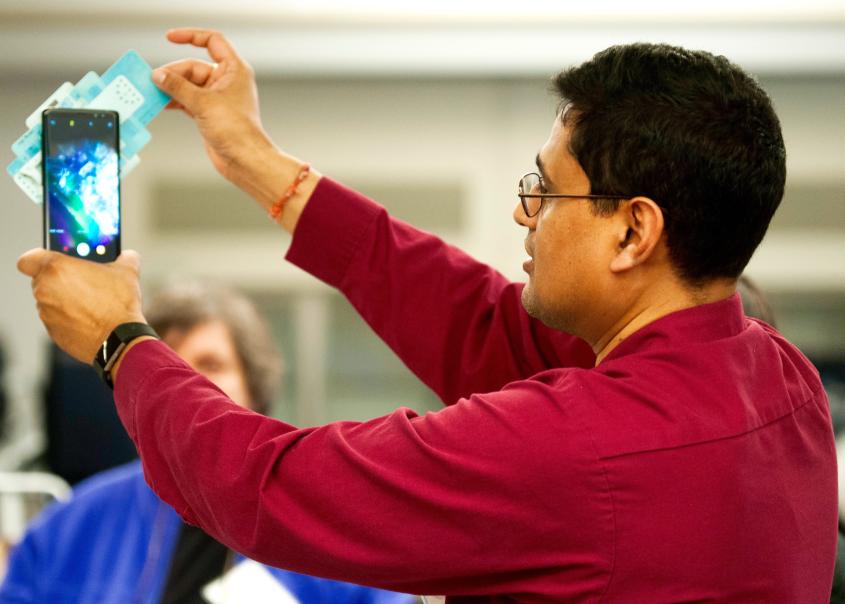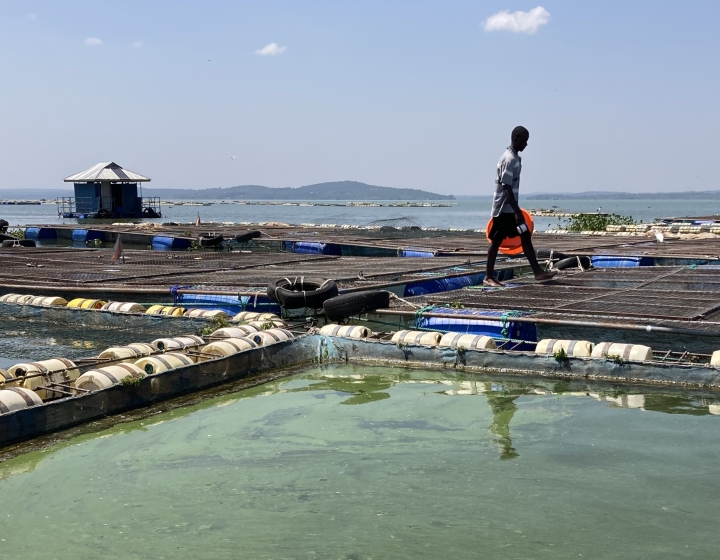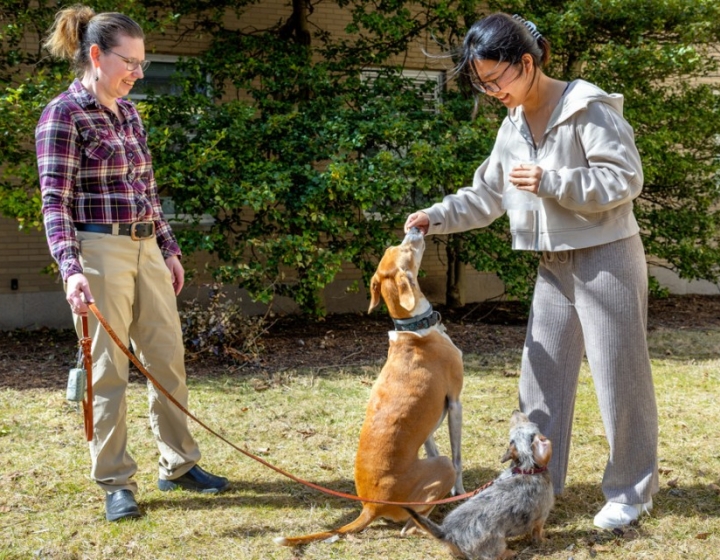Paper microscopes and protozoa inspire educators at college workshop
Last week, the college hosted a workshop that demonstrated the power of simple, accessible science with the Foldscope—a $1 paper microscope. Led by NIH scientist Lakshminarayan Iyer and Jim Cybulski, president and CEO of Foldscope Instruments, Inc., and sponsored by ASSET, an NIH-funded, science-education outreach program at Cornell University, the workshop explored the numerous applications and integration of Foldscope into classroom curricula with 25 teachers from communities throughout New York. “Every child should have access to a microscope to explore the world around them,” said Donna Cassidy-Hanley, senior research associate and ASSET program manager. “It allows kids to do science as science ought to be done—which means being creative, looking at things that pique your interest and not just because you're told to.”

Whereas most microscopes are expensive, bulky, and fragile, the Foldscope is a low-cost, origami-based microscope that can be assembled and deconstructed in minutes, achieving a magnification of 140x and a resolution of 2 microns. Invented by Manu Prakash and Jim Cybulski at Stanford University, Foldscope comprises basic materials including a sheet of cardstock, a glass ball lens, and a three-volt battery, costing only a dollar to manufacture. Users can load a sample onto a standard glass slide and examine it with the naked eye while holding the Foldscope towards a light source. Users can attach their cellphones to the scope to enable digital zoom, slow-motion view, and photo/video capture.
Cybulski co-invented the device with Manu Prakash while Cybulski was a PhD student in Prakash’s laboratory at Stanford University. Inspired by founding microscopist Antonie van Leeuwenhoek,who discovered unicellular bacteria in the 1670s using a single, spherical lens, they applied this same, simple approach towards the goal of providing equal access to scientific knowledge and experience for children in remote, impoverished areas. According to Cybulski, Foldscope’s vision is to “magnify curiosity worldwide…enabling communities everywhere to access the experience of science.”
The attendees at CVM’s ASSET-coordinated workshop got hands-on time with Foldoscopes by

viewing ASSET’s samples of Tetrahymena, a single-celled, ciliated protozoa used around the world for research. ASSET (which stands for “Advancing Secondary Science Education through Tetrahymena”) provides free, fully functional, inquiry-based science kits including Tetrahymena cells, medium, and access to an equipment lending library—all of which is used for small independent research projects for high school students. Supported by educational outreach funding from the NIH Science Education Partnership Award program, ASSET is now serving in its eighth year, and has worked with over 450 teachers and supplied educational materials to more than 20,000 students across 28 states. “We’re excited to further expand our work,” says Cassidy-Hanley, who points out that teachers anywhere in the country can contact ASSET for these kits free of charge.
Conference attendees, including Mark Muller, a 10-12th grade Biology and Anatomy Teacher at Oxford Academy, and his wife, Larissa Waghorn, a special education teacher from Gilbertsville-Mt. Upton Central School, constructed their own Foldscopes and viewed ASSET samples of Tetrahymena organisms, aquaria water, and leaves. “At the end of the workshop [my wife and I] realized that we only scratched the surface of the possibilities of this microscope as a tool for our students.”
Waghorn was also excited about the tool’s potential. “Thinking back to my own high school days, I struggled with the abstractness of many topics covered in science and couldn't help but wonder if I wouldn't have found it more engaging if I had access to something like a Foldscope giving me hands-on access to a world I couldn’t see,” she said. “The presenters spent the day showing us how to build and use the Foldscope and gave us different ideas for its use both in and out of the classroom.” Immediately after the workshop, Wagner ordered a set of Foldscopes for her students. “When I went to school Monday morning I was beyond excited to share it with my students and other staff members, and it did not disappoint--they loved it!”
-By Elvina Yau, Cornell University College of Veterinary Medicine communications intern





